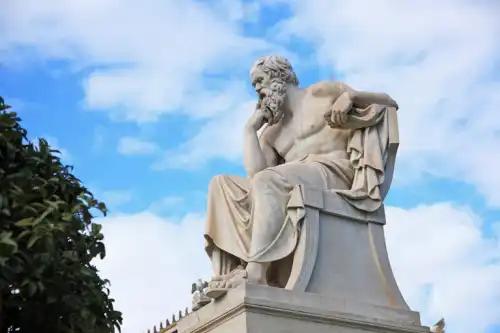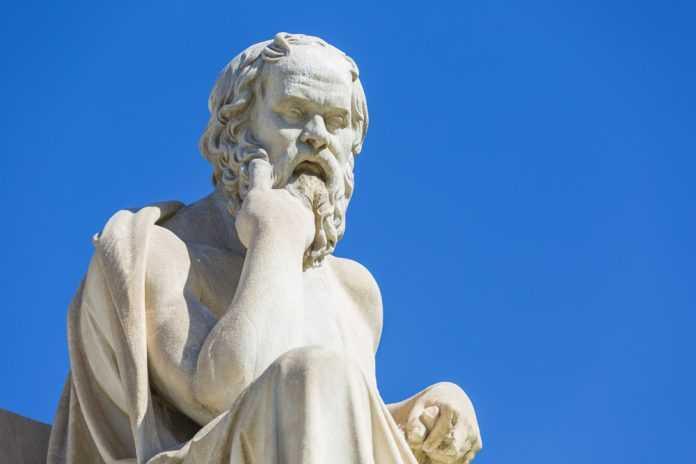What Is Socratic Ignorance?
Curated from: thoughtco.com
Ideas, facts & insights covering these topics:
3 ideas
·5.03K reads
15
Explore the World's Best Ideas
Join today and uncover 100+ curated journeys from 50+ topics. Unlock access to our mobile app with extensive features.
Socratic ignorance
Socratic ignorance refers to a person's acknowledgment of their ignorance: "I know only one thing – that I know nothing."
It is also referred to as "Socratic wisdom."
305
2.34K reads
Socratic ignorance in Plato's Dialogues
Greek philosopher Socrates (469-399 BCE) is associated with humility regarding what one knows. In Plato's dialogues, Socrates is shown to challenge someone who thinks they know something, but when questioned thoroughly about it, turns out not to understand at all. By contrast, Socrates admits from the start that he does not know the answer.
In the Meno (a Socratic dialogue by Plato), Socrates is asked by Meno if virtue can be taught. Socrates responds that he doesn't know what virtue is. In a later part of the dialogue, Socrates shows that an essential step to learning anything is to clear one's mind of false ideas, even if you seem ignorant.
255
1.36K reads
The Importance of Socratic Ignorance
The best way to change dogmatically held beliefs is to start with a skeptical attitude and ask questions, assuming you know nothing.
However, it is questionable how feasible it is to keep an attitude of Socratic ignorance on all matters. Even Socrates says, for instance, that he is sure that no real harm can befall a good man. He is equally confident that "the unexamined life is not worth living."
253
1.31K reads
IDEAS CURATED BY
Maxwell D.'s ideas are part of this journey:
Learn more about problemsolving with this collection
How to find purpose and meaning in life
How to cultivate gratitude
Techniques for managing negative thoughts
Related collections
Similar ideas
17 ideas
Heraclitus and Parmenides: What is the Nature of the Universe?
thecollector.com
7 ideas
3 ideas
What You Should Know About the Philosopher Plato
thoughtco.com
Read & Learn
20x Faster
without
deepstash
with
deepstash
with
deepstash
Personalized microlearning
—
100+ Learning Journeys
—
Access to 200,000+ ideas
—
Access to the mobile app
—
Unlimited idea saving
—
—
Unlimited history
—
—
Unlimited listening to ideas
—
—
Downloading & offline access
—
—
Supercharge your mind with one idea per day
Enter your email and spend 1 minute every day to learn something new.
I agree to receive email updates

